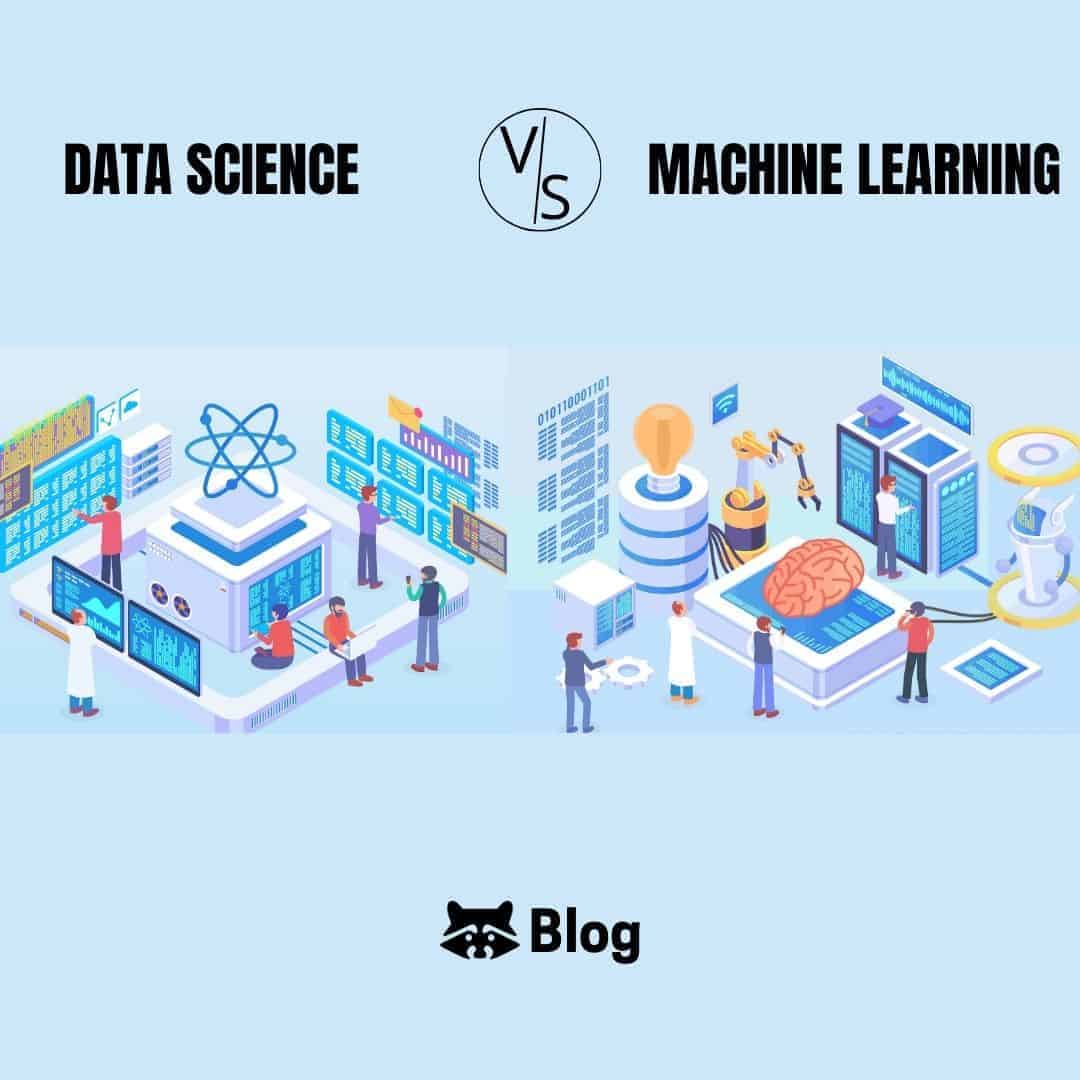At its center, data science is a field of study that expects to utilize a scientific way to deal with extracting significance and experiences from the data. Dr Thomas Miller of Northwestern University clarifies data science as – a blend of information technology, demonstrating, and business management. The fast development of the data science field has prompted various universities around the world to consider data science as a full-fledged course in their online programs.
About Machine Learning, it’s the process of computer learning in order to perform a certain task with experiences in the process. The process uses algorithms to make predictions and find patterns while doing so. Machine learning is used by data scientists and other professionals where it offers various ideas, tools, and techniques. Machine learning is one of the most in-demand methods to process a huge amount of raw data.
Data science and machine learning are two popular buzzwords today but they are not synonyms for each other. Although data science is inclusive of machine learning, it is a varied field in itself which offers many different tools.
Data science process
The increased usage of smartphones and digitization in many parts of our daily life have created a huge amount of data. Simultaneously, the continuation of Moore’s Law, the possibility that computing would significantly increase in force and decrease in relative cost after some time, has made modest computing power broadly available. Data science exists as the connection between these two developments. By joining these parts, data scientists can get more understanding from data than any other time in recent memory.
The process of data science needs a special mix of aptitudes and experiences. A decent data scientist is conversant in programming languages like R and Python, knows about statistical strategies, a comprehension of database architecture, and the experience to apply these aptitudes to real-world issues. A master’s in data science may expand after existing information to guarantee that you are best ready for a long career in this ever-developing field.
The Limitations of Data Science
Although it might sound self-evident, data science depends on data; it’s all about data. The enormous development of data science was prodded by the accessibility of massive datasets and cheap processing power. Just with these incredible resources is data science viable. Small datasets, untidy data, and wrong information can burn through a great deal of time, making models that produce meaningless or deluding results. If the data doesn’t catch the genuine reason for variety, data science will fail miserably.
Careers in Data Science
Wherever there is big data, there is data science. As every industry is beginning to collect data on customers and products, the need for data scientists will be growing exponentially. To start your path to a career in data science, consider adopting more skills relevant to the data science jobs.
What’s Machine Learning?
Machine learning makes a valuable model or program via autonomous testing many solutions against the available data and finding the best fit for the issue. This implies machine learning is extraordinary at solving issues that are extremely labor-intensive for people. It can inform decisions and make forecasts about complex subjects in an effective and reliable manner.
These qualities make machine learning valuable in a huge number of different applications and industries. The opportunities for machine learning are huge. This innovation can possibly save lives and tackle important issues in medical services, digital security, and the sky is the limit from there. Google, consistently on the front line, has chosen to integrate machine learning into all that they do to remain on top of things.
The Basic Limitations of Machine Learning
Although machine learning sounds like a magic pill to solve any problem, it is not that powerful.
Algorithms of machine learning are better than ever at making important results with minimal intercession. Nonetheless, we will consistently require engineers and program developers to constrain and improve these algorithms to make them work on new inquiries. There will never be “one algorithm to manage them all”.
There are more problems that machine learning cannot solve. If a conventional program or equation can take care of an issue, adding machine learning may make the cycle complicated as opposed to simplifying it.
Importance of Machine Learning
Machine learning is being used in almost every industry. Cutting costs by allowing machine learning algorithms make decisions is a very profitable answer to many questions.
Applying these processes in industries like lending, recruiting and medicine raises some major moral concerns. Since these algorithms are prepared using data provided by humans, they incorporate social biases into their outcomes.
Since machine learning algorithms work without special rules, these biases might be covered up. Most machine learning algorithms are presently a “black box” – we know what goes in and what comes out, yet not how it arrived in the first place. Google is doing research to make it more clear how neural networks “think.” However, this work should go further before it can address data bias and other moral issues with machine learning. Where do data science and machine learning cross?
Machine learning is one of the numerous devices in the belt of a data scientist. So as to make machine learning work, you need a skilled data scientist who can literally play with any kind and size of data and make use of the proper tools to completely utilize the numbers.
The way these technologies are applied are vast, but not unlimited. In spite of the fact that data science is incredible, it possibly works if you have exceptionally skilled people and quality data. To engage in this developing field, checkout Felix-ITs, where we have put some interesting information on how you can enter these incredible opportunities.


